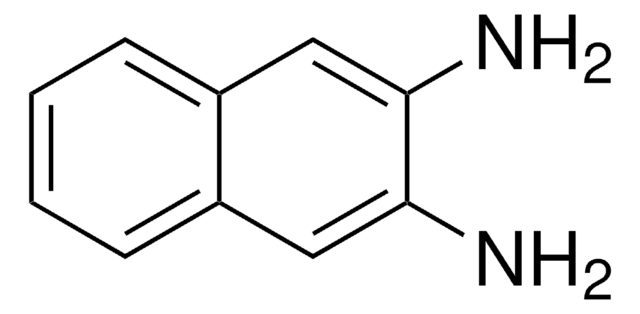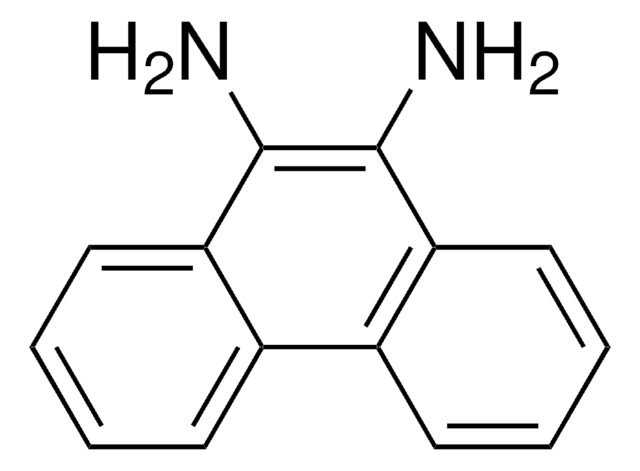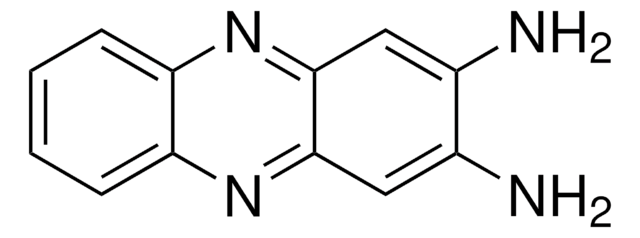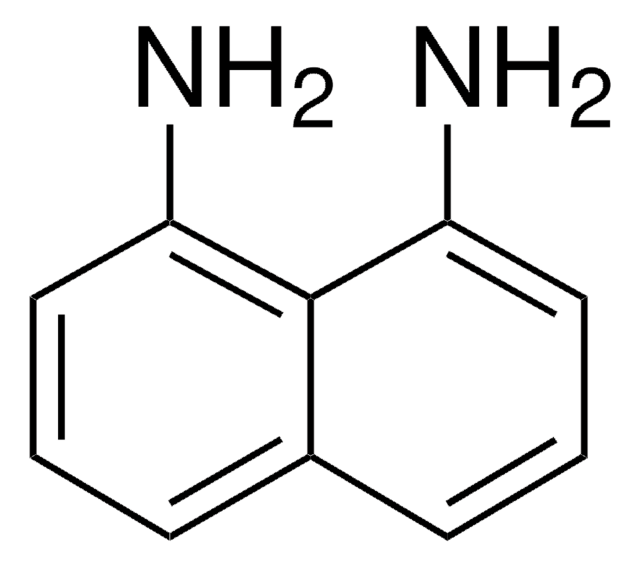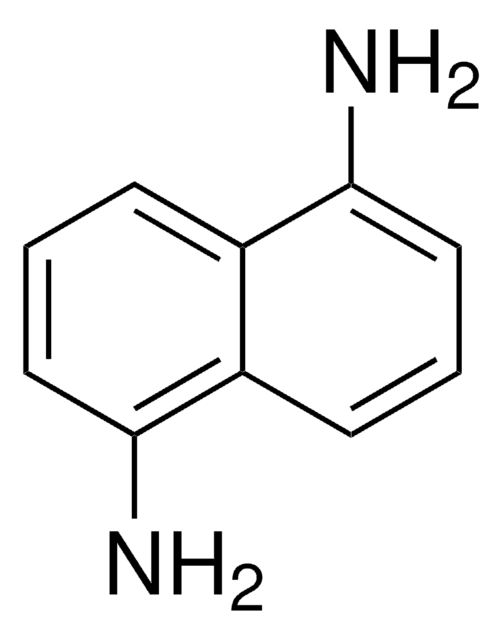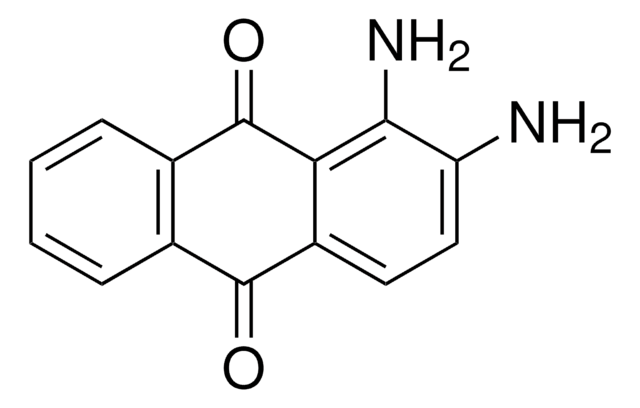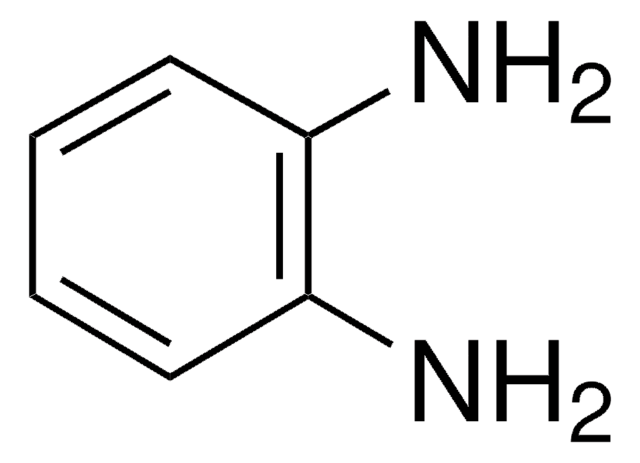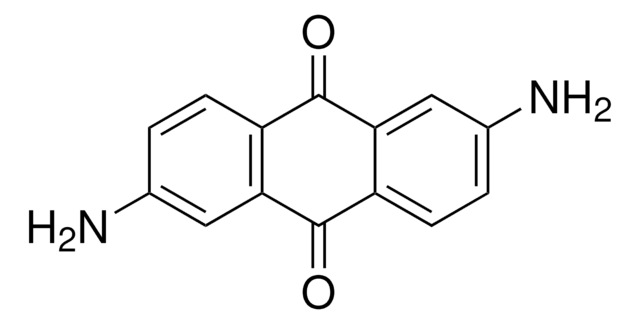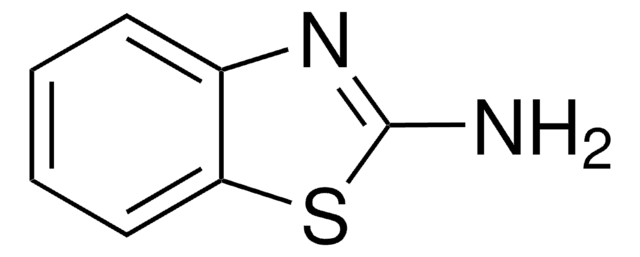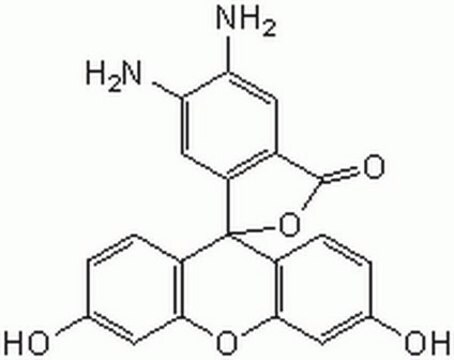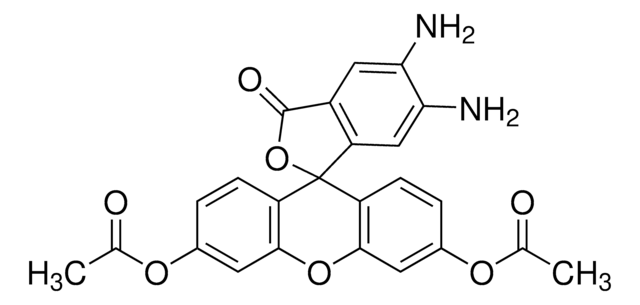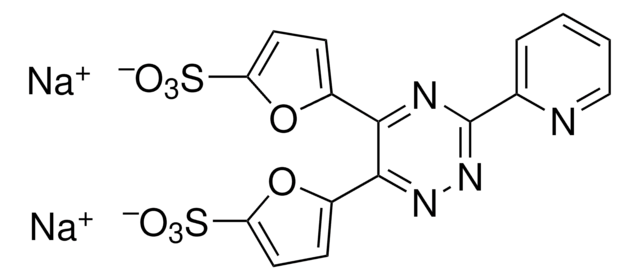88461
2,3-Diaminonaphthalene
BioReagent, suitable for fluorescence, ≥98.0% (HPLC)
Synonym(s):
naphthalene-2,3-diamine, 2,3-Naphthalenediamine, DAN
About This Item
Recommended Products
product line
BioReagent
Quality Level
Assay
≥98.0% (HPLC)
form
solid
mp
196-202 °C
fluorescence
λex 364 nm; λem 406 nm in 0.5 M Na carbonate pH 10.0 (after derivatization with NaNO2 in 0.1 M HCl)
suitability
suitable for fluorescence
SMILES string
Nc1cc2ccccc2cc1N
InChI
1S/C10H10N2/c11-9-5-7-3-1-2-4-8(7)6-10(9)12/h1-6H,11-12H2
InChI key
XTBLDMQMUSHDEN-UHFFFAOYSA-N
Looking for similar products? Visit Product Comparison Guide
Related Categories
General description
Application
DAN is used in the fluorometric determination of selenium in biological materials.
Packaging
Analysis Note
Signal Word
Warning
Hazard Statements
Precautionary Statements
Hazard Classifications
Acute Tox. 4 Oral - Eye Irrit. 2 - Skin Irrit. 2 - STOT SE 3
Target Organs
Respiratory system
Storage Class Code
11 - Combustible Solids
WGK
WGK 3
Flash Point(F)
Not applicable
Flash Point(C)
Not applicable
Personal Protective Equipment
Choose from one of the most recent versions:
Already Own This Product?
Find documentation for the products that you have recently purchased in the Document Library.
Customers Also Viewed
Our team of scientists has experience in all areas of research including Life Science, Material Science, Chemical Synthesis, Chromatography, Analytical and many others.
Contact Technical Service